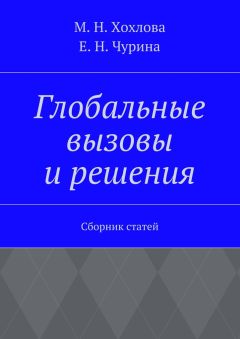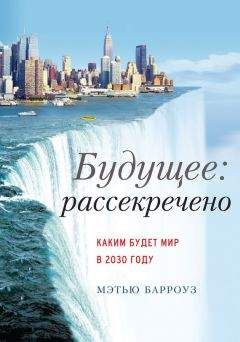Oscar Wilde - The Happy Prince and Ohter Tales
So she spread her brown wings for flight (итак, он расправил свои темные: «коричневые» крылья для полета), and soared into the air (и взмыл в воздух). She swept over the garden like a shadow (он пронесся над садом, как тень; to sweep (swept) — мести, подметать; нестись, мчаться), and like a shadow she sailed through the grove (и, как тень, он пролетел через рощу; to sail — плавать, плыть под парусом; зд. авиа. парить, планировать).
chariot ['t∫æriət] hawthorn ['hO:θO:n] heather ['heðə]
“Death is a great price to pay for a red rose,” cried the Nightingale, “and Life is very dear to all. It is pleasant to sit in the green wood, and to watch the Sun in his chariot of gold, and the Moon in her chariot of pearl. Sweet is the scent of the hawthorn, and sweet are the bluebells that hide in the valley, and the heather that blows on the hill. Yet Love is better than Life, and what is the heart of a bird compared to the heart of a man?”
So she spread her brown wings for flight, and soared into the air. She swept over the garden like a shadow, and like a shadow she sailed through the grove.
The young Student was still lying on the grass (юный Студент все еще лежал на траве; to lie (lay, lain) — лежать), where she had left him (где он = соловей, оставил его), and the tears were not yet dry (и слезы еще не высохли: «не были еще сухими»; dry — сухой) in his beautiful eyes (в его прекрасных глазах).
“Be happy (радуйся; happy — счастливый, довольный, веселый),” cried the Nightingale (воскликнул Соловей), “be happy (веселись); you shall have your red rose (ты получишь свою красную розу). I will build it out of music by moonlight (я создам ее из музыки при свете луны), and stain it with my own heart’s-blood (и окрашу = обагрю ее кровью моего /собственного/ сердца). All that I ask of you in return (все о чем я прошу тебя в ответ/взамен; return — возвращение, отдача) is that you will be a true lover (это то, что ты будешь настоящим влюбленным), for Love is wiser than Philosophy (так как Любовь мудрее чем Философия), though she is wise (хотя она и мудра), and mightier than Power (и могущественнее Власти; power — сила, мощь, энергия, власть), though he is mighty (хотя она и могущественна). Flame-coloured are his wings (ее /любви/ крылья — цвéта пламени; colour — цвет, оттенок, to colour — красить, окрашивать), and coloured like flame is his body (и раскрашено, как пламя, ее тело). His lips are sweet as honey (губы ее сладки, как мед), and his breath is like frankincense (и ее дыхание — как благовоние/ладан).”
return [ri'tə:n] mighty ['maiti] honey ['hλni] frankincense ['fræŋkinsens]
The young Student was still lying on the grass, where she had left him, and the tears were not yet dry in his beautiful eyes.
“Be happy,” cried the Nightingale, “be happy; you shall have your red rose. I will build it out of music by moonlight, and stain it with my own heart’s-blood. All that I ask of you in return is that you will be a true lover, for Love is wiser than Philosophy, though she is wise, and mightier than Power, though he is mighty. Flame-coloured are his wings, and coloured like flame is his body. His lips are sweet as honey, and his breath is like frankincense.”
The Student looked up from the grass (Студент поднял голову от травы; to look up — поднимать глаза, обращать взоры), and listened (и слушал), but he could not understand (но он не мог понять) what the Nightingale was saying to him (что говорил ему Соловей), for he only knew the things (так как он знал только те вещи) that are written down in books (которые записаны в книгах; to write (wrote, written)).
But the Oak-tree understood (но понял Дуб), and felt sad (и /он/ загрустил; to feel (felt) — чувствовать; sad — печальный, грустный), for he was very fond of the little Nightingale (так как он очень любил маленького Соловья; fond — любящий, нежный) who had built her nest in his branches (который свил: «построил» свое гнездо в его ветвях).
“Sing me one last song (спой мне одну последнюю песню),” he whispered (прошептал он); “I shall feel very lonely (я буду чувствовать себя очень одиноко) when you are gone (когда тебя не будет / когда ты умрешь; to go (went, gone) — идти, ходить; умирать, гибнуть).”
So the Nightingale sang to the Oak-tree (тогда Соловей спел Дубу), and her voice was like water (и голос его звучал: «был» как вода) bubbling from a silver jar (журчащая из серебряного кувшина; to bubble — пузыриться, булькать; журчать).
When she had finished her song (когда он закончил свою песню) the Student got up (Студент поднялся; to get (got)), and pulled a note-book (и вытащил блокнот; note — заметка, book — книга) and a lead-pencil (и графитовый карандаш; lead — свинец; карандашный грифель) out of his pocket (из /своего/ кармана).
branch [brα:nt∫] whisper ['wispə] jar [dζα:] lead pencil ["led'pens(ə)l]
The Student looked up from the grass, and listened, but he could not understand what the Nightingale was saying to him, for he only knew the things that are written down in books.
But the Oak-tree understood, and felt sad, for he was very fond of the little Nightingale who had built her nest in his branches.
“Sing me one last song,” he whispered; “I shall feel very lonely when you are gone.”
So the Nightingale sang to the Oak-tree, and her voice was like water bubbling from a silver jar.
When she had finished her song the Student got up, and pulled a note-book and a lead-pencil out of his pocket.
“She has form (у него /= пения соловья/ есть форма: «она имеет форму»),” he said to himself (сказал он сам себе), as he walked away through the grove (когда он уходил сквозь рощу) —“that cannot be denied to her (в этом ему нельзя отказать; to deny — отрицать, отвергать; отказывать); but has she got feeling (но есть ли у него чувство)? I am afraid not (/я/ боюсь, что нет). In fact, she is like most artists (на самом деле, он подобен большинству художников; fact — факт, событие; реальность); she is all style (/он представляет собой/ только стиль; all — всецело, целиком; ничего кроме, только), without any sincerity (без какой-либо искренности). She would not sacrifice herself for others (он не пожертвует собой ради других). She thinks merely of music (он думает только о музыке), and everybody knows (и каждый знает) that the arts are selfish (что /все виды/ искусства эгоистичны = искусство эгоистично). Still, it must be admitted (и все же, следует признать: «это должно быть признано») that she has some beautiful notes in her voice (что в его голосе есть несколько прекрасных нот; note — заметка, примечание; муз. нота, тон). What a pity it is (какая жалость) that they do not mean anything (что они ничего не значат), or do any practical good (или = и не приносят: «делают» никакой практической пользы; good — добро, благо; польза).” And he went into his room (и он пошел к себе в комнату; to go (went, gone)), and lay down on his little pallet-bed (и лег на свою узкую койку; to lie (lay, lain), little — маленький, небольшой, короткий; pallet(-bed) — соломенный тюфяк, убогая постель; койка), and began to think of his love (и начал думать о своей любви; to begin (began, begun)); and, after a time (и, через некоторое время), he fell asleep (он заснул; to fall (fell, fallen) — падать, опускаться; зд. в качестве глагола-связки в составном именном сказуемом, asleep — спящий).
through [θru:] sincerity [sin'seriti] pallet-bed ['pælitbed]
“She has form,” he said to himself, as he walked away through the grove—“that cannot be denied to her; but has she got feeling? I am afraid not. In fact, she is like most artists; she is all style, without any sincerity. She would not sacrifice herself for others. She thinks merely of music, and everybody knows that the arts are selfish. Still, it must be admitted that she has some beautiful notes in her voice. What a pity it is that they do not mean anything, or do any practical good.” And he went into his room, and lay down on his little pallet-bed, and began to think of his love; and, after a time, he fell asleep.
And when the Moon shone in the heavens (а когда Луна засияла на небе; to shine (shone) — светить, сиять) the Nightingale flew to the Rose-tree (Соловей полетел к Розовому Кусту; to fly (flew, flown)), and set her breast against the thorn (и прижал свою грудь к шипу: «расположил свою грудь напротив/у шипа»; to set (set) — ставить, помещать, располагаться). All night long she sang (всю ночь напролет он пел; to sing (sang, sung)) with her breast against the thorn (/и/ его грудь /была прижата/ к шипу), and the cold crystal Moon (и холодная хрустальная Луна; crystal — кристаллический; хрустальный) leaned down and listened (склонилась и слушала; to lean — наклоняться, нагибаться; склоняться). All night long she sang (всю ночь напролет он пел), and the thorn went deeper and deeper into her breast (и шип входил все глубже и глубже в его грудь), and her life-blood ebbed away from her (и его /живительная/ кровь постепенно уходила из него; to ebb away — отступать /о приливе, воде/; ослабевать, угасать).
against [ə'ge(i)nst] crystal ['kristl] ebb [eb]
And when the Moon shone in the heavens the Nightingale flew to the Rose-tree, and set her breast against the thorn. All night long she sang with her breast against the thorn, and the cold crystal Moon leaned down and listened. All night long she sang, and the thorn went deeper and deeper into her breast, and her life-blood ebbed away from her.




